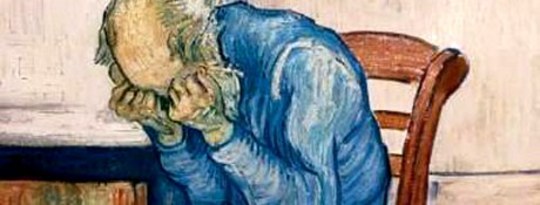
People who do not succeed have one distinguishing trait in common. They know all the reasons for failure, and have what they believe to be airtight alibis to explain away their own lack of achievement.
A character analyst compiled a list of the most commonly used alibis. As you read the list, examine yourself carefully, and determine how many of these alibis, if any, are your own property. Remember, too, the philosophy presented in this book (Think and Grow Rich – The Master Mind Volume) makes every one of these alibis obsolete. (Editor's Note: This is a partial list; the complete list is found in the book.)
FAMOUS ALIBIS BY "OLD MAN IF"...
- IF I didn’t have a wife and family ...
- IF I had enough “pull” . . .
- IF I had money ...
- IF I had a good education ...
- IF I could get a job ...
- IF I had good health ...
- IF I only had time ...
- IF times were better ...
- IF other people understood me ...
- IF conditions around me were only different ...
- IF I could live my life over again ...
- IF I did not fear what “they” would say ...
- IF I had been given a chance ...
- IF I were only younger ...
- IF I could only do what I want ...
- IF I had been born rich ...
- IF I could meet “the right people” .. .
- IF I had the talent that some people have ...
- IF I only had embraced past opportunities ...
- IF I didn’t have to keep house and look after the children ...
- IF I could save some money ...
- IF the boss only appreciated me ...
- IF I only had somebody to help me ...
- IF my family understood me ...
- IF I lived in a big city ...
- IF I could just get started ...
- IF I had the personality of some people ...
- IF I were not so fat ...
- IF my talents were known ...
- IF I could just get a “break” .. .
- IF I could only get out of debt ...
- IF I hadn’t failed ...
- IF I only knew how ...
- IF I didn’t have so many worries ...
- IF I were sure of myself...
- IF luck were not against me ...
- IF I did not have to work so hard ...
- IF I hadn’t lost my money ...
- IF I lived in a different neighborhood ...
- IF I didn’t have a “past” .. .
- IF I only had a business of my own ...
- IF other people would only listen to me ...
- IF * * * and this is the greatest of them all * * *
I had the courage to see myself as I really am, I would find out what is wrong with me, and correct it, then I might have a chance to profit by my mistakes and learn something from the experience of others, for I know that there is something wrong with me, or I would now be where I would have been if I had spent more time analyzing my weaknesses, and less time building alibis to cover them.
Building Alibis to Explain Away Failure
A pessimist sees the difficulty in every opportunity;
an optimist sees the opportunity in every difficulty.
— Winston Churchill
 Building alibis with which to explain away failure is a national pastime. The habit is as old as the human race, and is fatal to success! Why do people cling to their pet alibis? The answer is obvious. They defend their alibis because they create them! A man’s alibi is the child of his own imagination. It is human nature to defend one’s own brainchild.
Building alibis with which to explain away failure is a national pastime. The habit is as old as the human race, and is fatal to success! Why do people cling to their pet alibis? The answer is obvious. They defend their alibis because they create them! A man’s alibi is the child of his own imagination. It is human nature to defend one’s own brainchild.
“It has always been a mystery to me,” said Elbert Hubbard, “why people spend so much time deliberately fooling themselves by creating alibis to cover their weaknesses. If used differently, this same time would be sufficient to cure the weakness; then no alibis would be needed.”
Reprinted with permission of the publisher,
Jeremy P. Tarcher/Penguin, a member of Penguin Group (USA).
©2011 by Joel Fotinos & August Gold. www.us.PenguinGroup.com.
This article was adapted with permission from the book:
Think and Grow Rich: The Master Mind Volume
by Napoleon Rich. (contains reprints of the original 1937 edition)
 Think and Grow Rich by Napoleon Hill has become the must-have bible of prosperity and success for millions of readers since its initial publication in 1937. Published in the easy-to-use large format, this is the edition that serious students of Think and Grow Rich will want to use to understand the original text fully and put it into action in their lives.
Think and Grow Rich by Napoleon Hill has become the must-have bible of prosperity and success for millions of readers since its initial publication in 1937. Published in the easy-to-use large format, this is the edition that serious students of Think and Grow Rich will want to use to understand the original text fully and put it into action in their lives.
Click here for more info or to order this book on Amazon.
About the Author
Napoleon Hill was born in 1883 in Virginia and died in 1970 after a long and successful career as a lecturer, author, and consultant to business leaders. Think and Grow Rich is the all-time bestseller in its field, having sold 15 million copies worldwide, and sets the standard for today’s motivational thinking. Napoleon Hill established the Foundation as a nonprofit educational institution whose mission is to perpetuate his philosophy of leadership, self-motivation, and individual achievement. Visit www.naphill.org for more information.




























